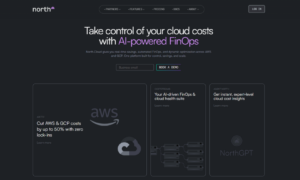Fintech companies are lending and processing money in greater sums than ever before, initiating new financial models that could restructure entire economies in the long-term. This explosion of tech in the financial sector presents a powerful opportunity for consumers who are increasingly gravitating towards digital processes, but for the fintech providers themselves, let alone the major financial institutions, this also introduces an array of new potential pain points that could redefine the way they procure and implement services.
While fintech startups pursue grand visions for disrupting the future of finance, major financial institutions must maintain a clearly defined perspective on how new technologies impact the needs of their customers who are seeking more personalized and cutting edge services. Fintech and real-time business intelligence are necessary complements in that this combination alone allows the incredible innovation to continue while maintaining the high standards demanded by so sensitive an industry. By enabling providers and the institutions themselves to understand the vast data passing through their systems and to engage with it in real time, the innovation pipeline can be maintained while keeping together the integrity of the wider industry.
Business Intelligence as the Backbone of Fintech
Big data is fundamental to the financial industry as it enables business to more effectively deliver, adapt and market their services. Yet, traditional analytics and BI solutions deal with historical data, not this minute or even today’s data. In addition, due to its limitations, it typically looks at only a subset of all of the available data. These limitations yield at best delayed and at worst incomplete results. Given today’s real-time digital demands and the amount of data that financial transactions produce; such traditional approaches are no longer good enough.
Take the example of digital payment processing company Stripe which requires constant monitoring of their system to engage the growing number of e-commerce businesses entering the market. With such a high volume of transactions at any given time, monitoring for potential glitches like fraud or faulty systems is crucial as companies need to know what is happening at any given time. Payment processing is at the core of every e-commerce site, so much so that one issue can cause a ripple effect that puts the reputation of more than one company is at stake. The combination of incredible scale and the inherent sensitive data created by fintech services shows the immense problems that arise when all metrics aren’t effectively monitored with the near inevitable delay necessitated by standard BI solutions.
Managing All the Moving Parts
Fintech companies looking for the top level perspective on what their data means have been begging for a solution which enables them to work with real-time business analytics and incident detection so they can understand normal versus irregular patterns as they occur. Until now, they have been forced to continue the search for the BI company that can solve their quandaries or have been driven to develop their own in-house solutions – a costly and time consuming prospect.
Many fintech companies work with partners to provide offers for their customers as part of their business model. Knowing if every partner integration is working properly at every moment becomes impossible to track manually as soon as more than a handful of partners are involved. A real-time BI solution can flag the issues as they arise, enabling fintech companies to keep both partners and customers satisfied and keep the business running smoothly.
The Next Frontier – Using Real Time BI to Create Business Opportunities
To understand the value of BI in driving business opportunities, consider a digital lender. A company that provides real-time loan approvals needs to weigh current applicant risk factors to determine whether or not the applicant should be granted a loan. By widening the scope of analysis, this company is able to look at more holistic data – turning on all of the lights in the room instead of using just a flashlight – to allow the company to correlate all relevant data, not just the typical collected information in places where BI companies are accustomed to looking. By taking in the full picture, this company is able to make better lending decisions impacting their business success and their customer’s satisfaction.
Fintech is transforming the very nature of how business is being conducted by upping productivity, streamlining our existing financial infrastructure and bringing new services to consumers. Although fintech is aggressively deploying enhanced solutions for businesses, the technology powering these solutions are constantly evolving. Some businesses are beginning to adopt these new solutions while others are increasing their dependence. Everyday new questions and new challenges arise, but every day new answers, opportunities and solutions are being created.
By David Drai, Anodot CEO and cofounder



































